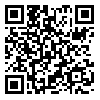Volume 7, Issue 5 (1-2015)
IJMEHM 2015, 7(5): 73-82 |
Back to browse issues page
Download citation:
BibTeX | RIS | EndNote | Medlars | ProCite | Reference Manager | RefWorks
Send citation to:



BibTeX | RIS | EndNote | Medlars | ProCite | Reference Manager | RefWorks
Send citation to:
Jafarey S A, Araminia B, Fayaz-Bakhsh A. Human dignity: contraction or abstraction?. IJMEHM 2015; 7 (5) :73-82
URL: http://ijme.tums.ac.ir/article-1-5464-en.html
URL: http://ijme.tums.ac.ir/article-1-5464-en.html
1- Tehran University of Medical Sciences,
2- School of Public Health, Tehran University of Medical Sciences
2- School of Public Health, Tehran University of Medical Sciences
Abstract: (8317 Views)
The nature of human dignity is among the most basic queries about the essence of humanity, and research in this area can produce results that may be applied to various health related topics. There is a need for defining comprehensive criteria for the bio-human in order to protect human rights and other values that are attributable to human biology.The present paper first attempts to determine whether abstraction is the base of human dignity, as opposed to contraction. The authors argue that the former may not be the case, as dignity is value-based and therefore implicates moral orders. Such issues cannot be abstracted from external existence, so one can assume contraction to be the base of human dignity. In that case, contraction requires a contractor or an origin for contraction. Self-contracted values are invalid and worthless, and by the same token, external existences are incapable of dignity. Therefore, a stable contractor is required to justify stability and the native essence of contracted dignity, and only God can be that stable, conscious, senior contractor.Among the criteria for dignity, the authors focus on those essential characteristics that differentiate humans from other organisms, and argue that these could be considered as the basis for dignity.
Type of Study: Research |
Subject:
Medical Ethics
Received: 2015/01/7 | Accepted: 2015/01/7 | Published: 2015/01/7
Received: 2015/01/7 | Accepted: 2015/01/7 | Published: 2015/01/7
Send email to the article author
| Rights and permissions | |
 |
This work is licensed under a Creative Commons Attribution-NonCommercial 4.0 International License. |





